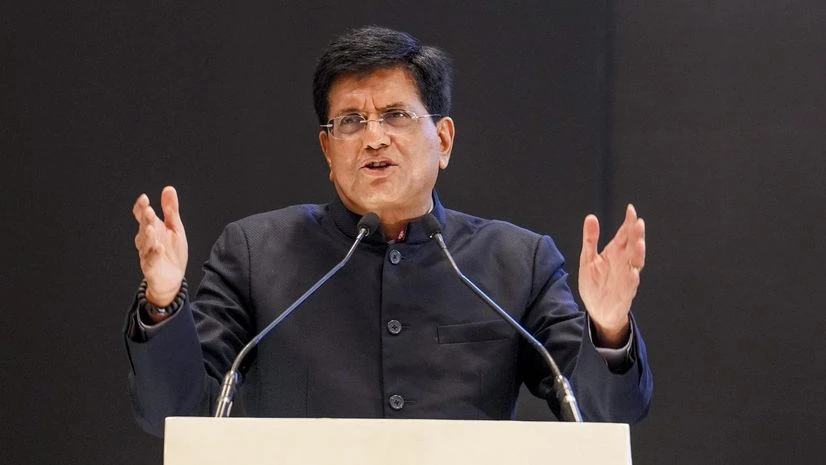Union Commerce Minister Piyush Goyal has urged the Reserve Bank of India (RBI) to consider reducing interest rates, questioning the reliance on food inflation as a key factor in monetary policy decisions. Speaking at the CNBC-TV18 Global Leadership Summit on Thursday, Goyal called the practice of basing rate decisions on volatile food prices a "flawed theory."
He clarified that his comments represent personal views, not the official position of the government.
Goyal expressed confidence that inflationary pressures would ease by December, stating, “Inflation under the Modi Government has been the lowest since India's independence.”
He also addressed concerns about foreign institutional investors (FII) withdrawing funds, advising investors to adopt a long-term outlook instead of focusing on quarterly fluctuations. Despite short-term challenges, he maintained that India’s economic fundamentals remain strong.
Inflation hits 14-month high in October
Goyal's remarks come as India faces a spike in retail inflation, which surged to a 14-month high of 6.21 per cent in October, driven primarily by rising vegetable prices. This rate breached the RBI's tolerance limit of 6 per cent for the first time in over a year, sparking debate over the central bank’s policy stance.
The RBI’s mandate is to keep inflation within a 2-6 per cent range, with a target of 4 per cent.
More From This Section
October’s retail inflation overshot this range, with food inflation climbing to 10.87 per cent from 9.24 per cent in September. Food items, which make up nearly half of India’s consumer price index, have a significant impact on overall inflation.
'Rate cut would be premature and risky': RBI Governor
In October, RBI Governor Shaktikanta Das cautioned that a rate cut would be “premature and very, very risky” given the prevailing uncertainties. Speaking at the Business Standard BFSI Insights Summit last week, Das further indicated that a rate cut may not be forthcoming. He said, “I find that it is only the index of industrial production (IIP) numbers and fast-moving consumer goods sales in the urban sector that have considerably moderated... But other than that, goods and services tax, e-way bills, toll collection, air passenger traffic, and the performance of the steel, cement and automobile industries have been exceedingly good." "The incoming data presents a mixed picture, but the positives outweigh the negatives," he added.
The RBI’s Monetary Policy Committee (MPC) has held the repo rate at 6.5 per cent since February 2023. In its latest review, the committee opted to maintain this rate while shifting its stance to "neutral."
The next MPC meeting, scheduled for December 4-6, will be closely watched as inflationary pressures and the high repo rate continue to influence both consumer and investment behaviour. Goyal’s remarks add an interesting dimension to the upcoming discussions.

)